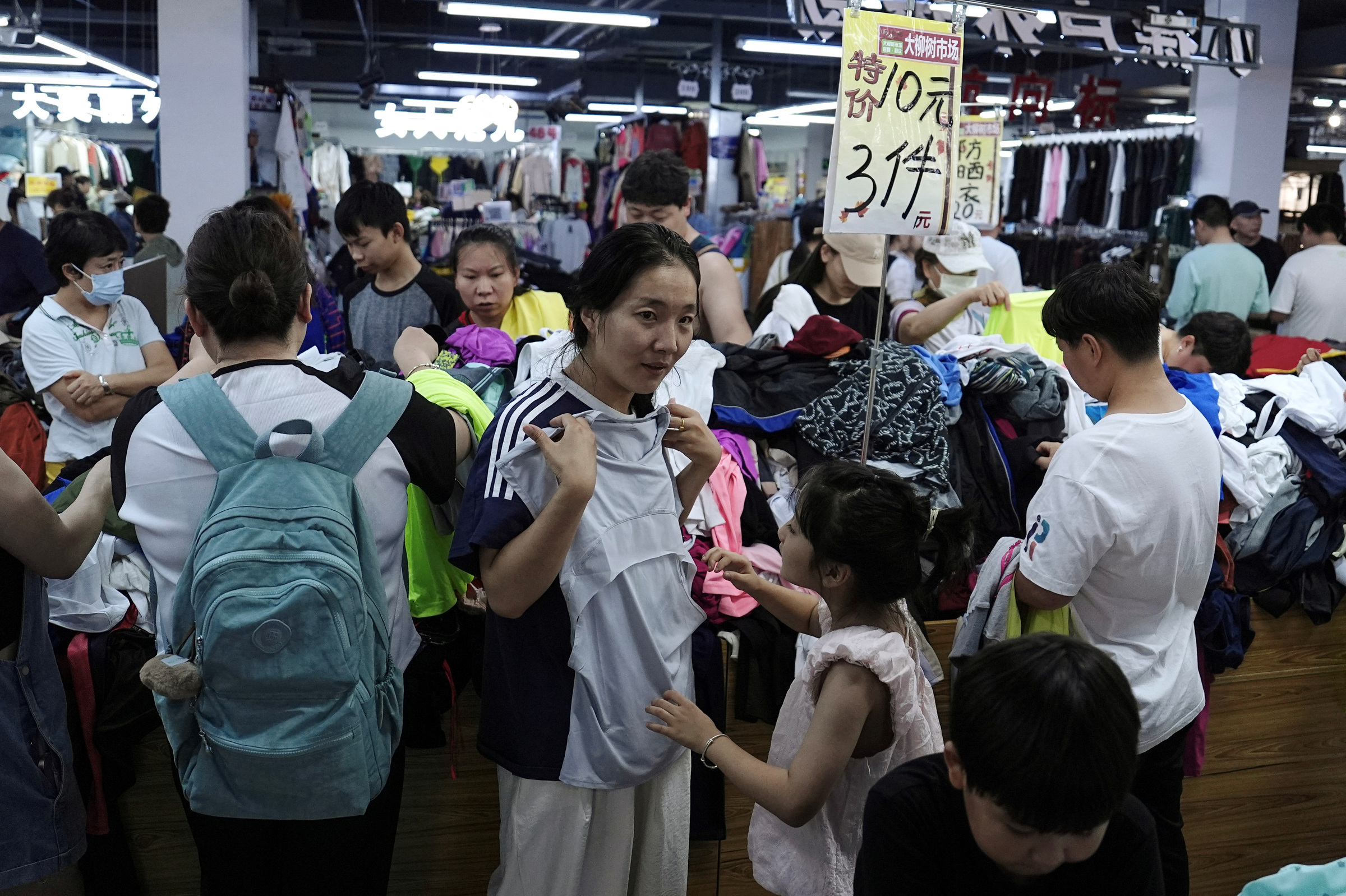Premier Li Qiang announced this decision on 23/9 during a speech at a China-hosted development forum held alongside the annual UN General Assembly meeting.
Explaining the rationale, China's Ministry of Commerce stated on Wednesday (24/9) that the move aims to bolster the global trading system amid threats to the WTO posed by tariff wars and protectionist measures from certain countries. The ministry did not specifically name the US or President Donald Trump's tariff policies.
The WTO serves as a platform for global trade negotiations and agreement enforcement, but its effectiveness has waned, leading to calls for reform. WTO Director-General Ngozi Okonjo-Iweala described China's decision as "big news, key to WTO reform." "This is the result of years of effort," she said.
 |
Shoppers browse discounted goods in Beijing, China on 14/7/2024. Photo: Reuters |
Shoppers browse discounted goods in Beijing, China on 14/7/2024. Photo: Reuters
Within the WTO, special developing nation status allows member countries to maintain higher import tariffs and other trade barriers to promote growth. In essence, they benefit from lower requirements for market opening and longer transition periods to implement such openings.
The US has long argued that China, the world's second-largest economy, should relinquish its developing nation status. Despite forgoing preferential treatment at the WTO, the Ministry of Commerce maintains that China remains a middle-income, developing country.
China and the international community have long acknowledged China as a "hybrid superpower" due to its economic, political, and scientific capabilities befitting superpower status. In 2023, the US House of Representatives unanimously voted that China should no longer be considered a developing nation.
However, the basis for classifying a country as "developing" remains persuasive, at least theoretically. Despite steady growth in recent decades, China's average income has not yet reached the threshold of developed nations. According to the World Bank, China's GDP per capita in 2024 was 13,303 USD, compared to 85,800 USD for the US.
Following the US House vote in May 2023, China's Ministry of Foreign Affairs asserted that Beijing has never used its "hybrid economy" status to evade international obligations or to gain special advantages. Instead, China has made significant contributions to global peace and development.
China's Ministry of Commerce also noted on 24/9 that a growing number of countries are receiving loans and technical assistance from China for major infrastructure projects like roads, railways, and hydroelectric dams, often undertaken by large Chinese state-owned corporations.
Phien An (according to AP)












